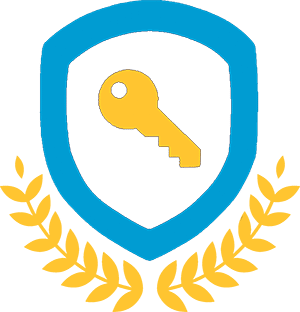On the day of my arrest, August 11, 1987, I wasn’t ready to accept responsibility. All I wanted was to get out of jail. Somehow, I wanted others to release me from the problems that I created. I hired counsel and prepared for trial. During the trial, I took the witness stand and lied, testifying that I didn’t have anything to do with selling cocaine.
The jury saw through my lies and convicted me of every count. I faced a sentence of life without the possibility of parole.
During that awkward transition between my conviction and my sentencing date, I prayed for guidance. I asked God for strength to make it through my sentence, with my dignity intact. I didn’t know how much time I would serve, where authorities would send me, or what would follow.
Following those prayers I found a philosophy book and I read about Socrates. I could identify with the story because Socrates was in jail. That story changed the way I think and it made me more mindful, transforming my life. Rather than dwelling on the problems I created, by reading Socrates (and later other philosophers) I learned how to think differently about my role in society.
As many people know, Socrates is the father of Socratic questioning. We can find awareness and become more mindful by asking better questions. As I lay in that jail cell, awaiting my sentencing hearing, I began to introspect, thinking about the bad decisions I made as a boy and adolescent. Those bad decisions led me into the problems and struggle I would go through for decades.
To make the most of the journey, I began to contemplate what I could do during my imprisonment to reconcile with society.
Those thoughts led me to think about the people I would meet in the future. What would they expect from me? By reflecting and asking a series of questions, I could pursue thoughts in many directions and explore complex ideas, opening my mind to new ideas.
I came up with a three-pronged strategy that follows:
- To reconcile with society, I would work to educate myself. By working to educate myself, I would show others that I do not want to live as a criminal.
- To reconcile with society, I would strive to contribute to the lives of others, in meaningful, measurable ways.
- To reconcile with society, I would work to build a strong support network. With a strong support network, I’d be more likely to create opportunities to grow, contribute, and leave a meaningful life.
That strategy, I hoped, would set me on a new path. It would guide my every decision as I moved into the system. I felt strongly that if I adhered to a disciplined, deliberate strategy, I would open opportunities in prison and upon release.
That strategy changed the way that I thought.
Later, the federal judge that presided over my trial sentenced me to 45 years. I didn’t know what that meant because I’d never been confined before. I couldn’t even contemplate what it meant. Later, I learned that if I avoided disciplinary problems while in prison, authorities would award me credit for “good behavior.” I could conclude the term in 26 years if I stayed out of problems in prison.
Since I was brought into the prison system when I was 23, I didn’t have a framework to contemplate what it would mean to serve 26 years in prison. But I had a strategy, articulated by the three points above. If I adhered to the strategy, I believed that I could get the best possible outcome—returning to society with my dignity in tact, with opportunities to live as a law-abiding, contributing citizen.
I began to project to the year of August 2013, when the prison system would release me. It would be crucial for me to make the best possible use of the 9,500 days I would live as a prisoner.
- I could visualize success, as getting out of prison in August of 2013.
- I could create a plan that would carry me through the journey.
- I could set priorities that I would need to work through along the way.
I needed tactics to show my commitment to the strategy. The tactics I pursued guided me through the first five years of my imprisonment. I am grateful to have found opportunities to earn an undergraduate degree from Mercer University in June of 1992. I am grateful to Hofstra University for allowing me to begin studying toward a master’s degree. I am grateful to the many mentors that came into my life as I worked through those first five years of imprisonment.

